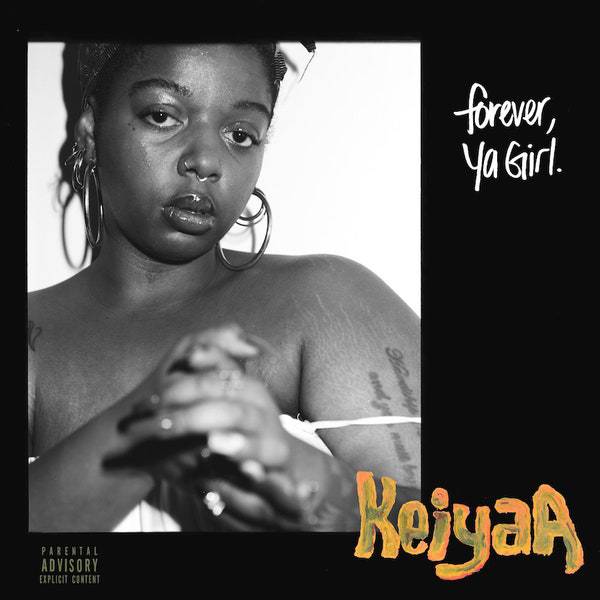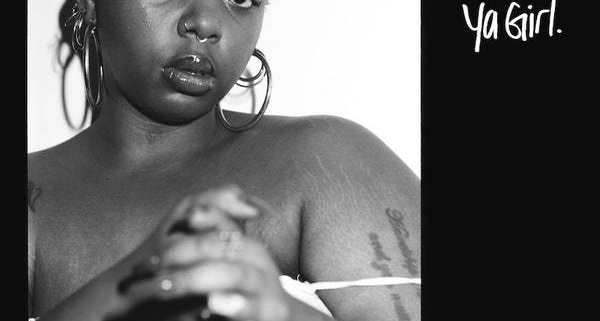Eddie on Aux: BADBADNOTGOOD, Giveon and KeiyaA

BADBADNOTGOOD — “Beside April”
Critics used terms such as “unique” and “imaginative” to describe BADBADNOTGOOD’s music, but the Canadian collective was just another example of a common phenomenon: white men in proximity to hip-hop. The trio came together at Humber College’s music school where they bonded over a shared love of alternative hip-hop and performed jazzy renditions of Odd Future songs. Supposedly, their instructors hated it. But the group persisted, got noticed by Tyler, The Creator and went viral soon after. Suddenly, they were popular enough to drop out of college and thumb their noses at the professors who probably just wanted them to make a 12-bar blues, or something.
Unfair or not, it was easy to be skeptical of BADBADNOTGOOD. They were the kind of music nerds that would use terms like syncopation to fawn over a J Dilla beat but were flippant about their music-making craft. Much of the group’s early songs were pointless jam sessions. But they were also studious musicians and had a genuine appreciation for hip-hop history. Producing for artists, such as their 2015 collaboration with Ghostface Killah, helped them focus their talents.
Now five years after their last album, BADBADNOTGOOD did what people do when they want to grow up: learn from their elders. In their case, they consulted with Arthur Verocai, the 76-year-old Brazilian composer who has become sort of a cult figure within the hip-hop/alternative community. Verocai’s influence is palpable throughout “Beside April,” from the orchestral strings to the experimental but controlled composition. A soothing bossa nova beat at the beginning of the song gives way to a thunderous guitar solo, and these sonic contrasts create a beautiful tension that pushes and pulls throughout.
Unlike some of their earlier work, “Beside April” sees BADBADNOTGOOD at their most intentional, with each note and instrument carefully thought out. The collective already has an impressive sheet of accomplishments and list of collaborators, but its best music may still be ahead.
KeiyaA — “Rectifiya”
“Forever, Ya Girl,” KeiyaA’s self-released, self-produced 2020 album, is one of the best projects in recent memory. The artist, born Chakeiya Richmond, crafts intimate music through her sparse thoughts and frustrations. Like Solange in “When I Get Home,” KeiyaA prefers to use mood as the messenger; her songwriting isn’t complex, but it is profound.
Outside of Solange, “Forever, Ya Girl” also seems inspired by some of KeiyaA’s Chicago counterparts — specifically Noname and Jamila Woods, Black female artists engaged radically with their work. On “I! Gits! Weary!” KeiyaA sings, “If to build and destroy is to be divine/Then all I really want is peace of mind.” When the burden of fixing the ills of this world are so often placed on the shoulders of those harmed the most by it, isn’t asking for rest a liberatory act?
On “Rectifiya,” KeiyaA builds a chorus and song of the backbone of a question: “Who rectifying me?” The question is specific and rests on the word “rectify,” but it’s addressed ambiguously — she could be addressing a specific person or something more abstract. Her precise language and framing in the songwriting carries a literary quality. Her songs give listeners something to contemplate.
Giveon — “For Tonight”
The problem with having a one-of-a-kind singing voice is that it spurs an A&Rs mind to go wild with ideas, and not many of them are good. Enter Giveon, who was “discovered” after Drake featured him on “Chicago Freestyle” and had fans wondering who was behind the baritone voice. He followed with his debut EP, “Take Time,” in 2020 that had some gems and positioned him as an artist to watch in the R&B scene. He then dropped a nondescript song with fellow R&B artist Snoh Aalegra, re-released his album with some more songs and found his way to the charts after appearing on Justin Bieber’s “Peaches.”
If 2021 has been about getting Giveon to the mainstream, consider him there after “For Tonight.” His voice was simply too good to be ignored by record labels, too valuable to be hidden from Spotify-curated playlists and radioplay. “For Tonight” has Giveon doing his best Sam Smith impression, crooning cheesy lines such as, “Honest, honest, that’s just a game we know/we both can’t play” over the most routine piano line and boom-boom-clap drum pattern.
It’s unfortunate that, in making Giveon more palatable to audiences, much of the depth of his artistry has been left behind. But this has been a common occurrence in the R&B genre, which seems to have the largest ideological chasm between the vision of its talent and the music industry’s demands. There’s no better example than Frank Ocean and the label drama that surrounded “blonde.” Like Ocean, Giveon can write beautiful songs and bring them to life with his voice, but it will require him to wrestle creative control from the label overlords cheapening his music.
“Eddie on Aux” is a biweekly series on a few songs that intrigue me. They don’t have to be earth-shattering or terrible, just something interesting enough to warrant an article. It is not a recommendation of what to play in the car to impress your friends, despite what the title suggests.

